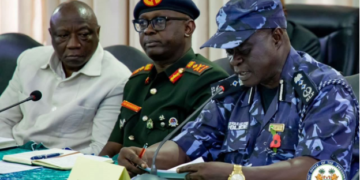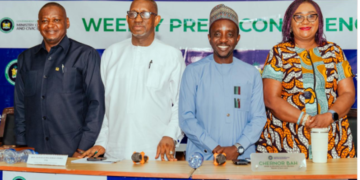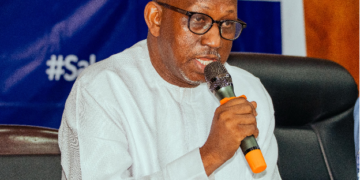By Lansana Kotor-Kamara Esq
Last week, I followed a troubling thread on social media that captured the public’s attention. The Mayor of Freetown claimed that dead bodies were littering the city as a result of the synthetic drug known as Kush. The Ministry of Local Government swiftly demanded further and better particulars from the Mayor, who replied with defiance. What seemed, at first, like a mere exchange between two public officials over sanitation and drug-related deaths soon revealed something far deeper. Beneath the surface lay the signs of a systemic governance disorder, a clash not about garbage or drugs, but about authority itself.
As a Sierra Leonean, and as a constitutional and governance expert, I recognized at once that this was more than a public spat. It reflected a deeper institutional fracture within the state. That realization prompted me to conduct this analysis, grounded in a simple but urgent hypothesis: Sierra Leone’s three-tier system of governance: the central government, the local councils, and the chiefdom authorities, is legally inconsistent, politically divisive, economically unsustainable, and institutionally unworkable.
When local government was reintroduced in 2004 through the Local Government Act, it was hailed as a democratic milestone: a mechanism to bring governance closer to the people. Two decades later, that dream stands broken. Local councils have become politically charged arenas, where service delivery takes a back seat to partisanship. The reality is harsh: our political landscape is already polarized along party and regional lines. Local councils have now deepened those divisions, turning what should have been a bridge between the people and the state into a battlefield of political rivalry. Instead of complementing central authority, councils now challenge it.
The result is a fragmented system where local representatives, driven by partisan loyalties, compete against the very government they are meant to support. Meanwhile, chiefdoms, rooted in history, culture, and legitimacy, continue to maintain community cohesion and command respect that elected councils have failed to earn. Fusing local government structures with chiefdom administrations, while strengthening central oversight, would restore coherence, stability, and legitimacy at the grassroots level.
The constitutional framework itself reinforces this position. The 1991 Constitution recognizes only two governance systems: the central government and the chiefdom administration. Local councils, by contrast, derive their existence solely from statute; the Local Government Act of 2004. They are creatures of legislation, not of the Constitution. To attempt to equate a statutory creation with constitutionally established institutions is to distort the hierarchy of governance. Section 5 of the Constitution clearly vests the sovereignty of the Republic in the people, to be exercised through the organs established by the Constitution itself: the Legislature, the Executive, and the Judiciary. Section 72 further recognizes the institution of chieftaincy and guarantees its protection under law. Nowhere does the Constitution mention local councils as an organ of governance.
Therefore, delegating or transferring constitutionally protected functions of the central government or chiefdom authorities to an entity not recognized under the Constitution raises serious legal questions. No Act of Parliament can elevate a statutory body to the status of a constitutional organ. Such attempts border on constitutional illegitimacy and threaten the supremacy of the Constitution itself. In essence, the current decentralization model is not only inefficient, it is constitutionally flawed.
Economically, the burden is equally unsustainable. Sierra Leone, with fewer than nine million people, operates three overlapping layers of governance, each demanding salaries, vehicles, allowances, and offices. Ministries, councils, and chiefdoms frequently perform identical functions, from education to sanitation, leading to fiscal leakage and institutional duplication. For a low-income country struggling with limited domestic revenue, this model is untenable. Streamlining governance is not an act of centralization, it is a necessity for fiscal survival.
Comparatively, smaller and more efficient African states like Rwanda and Botswana maintain centralized systems with minimal administrative tiers, ensuring that resources are spent on development rather than bureaucracy. Even larger nations such as Ghana and Kenya continue to struggle under the weight of excessive decentralization, with competing jurisdictions and runaway local expenditures undermining policy coherence. Sierra Leone’s system is not only outdated, it is economically self-defeating.
Practically, the central government’s reluctance to devolve key functions; education, health, and land management, is rooted in legitimate concern. Many local councils lack institutional capacity, professional competence, and fiscal discipline. Devolution without readiness has repeatedly produced decline rather than improvement in service delivery. A reformed governance structure should therefore aim to merge local councils with the chiefdom system into a unified Local-Community Governance Framework. Such a structure would combine the traditional legitimacy of chiefs with the administrative accountability of modern governance, under the oversight of the central government.
This approach would not erode democracy. On the contrary, it would bring governance closer to the people in its most trusted form, through institutions they recognize and respect. It would restore coherence to state authority, reduce waste, and reassert constitutional supremacy.
Sierra Leone’s governance system has reached a breaking point. Too many governments for too few people have created a maze of waste, rivalry, and dysfunction. The 2004 decentralization experiment, though noble in intent, has outlived its constitutional and political logic. The way forward is not to abandon local participation but to rebuild it on firmer ground, rooted in legality, unity, and accountability.
This is not a plea for centralization. It is a demand for constitutional order. Governance must return to its lawful foundations, where every authority derives its power from the Constitution and not from political convenience. Decentralization promised empowerment. What it delivered is fragmentation. Sierra Leone now faces a defining choice: continue feeding a bloated structure that divides and drains the nation, or build a lean, lawful, and unified system that truly serves the people.

























